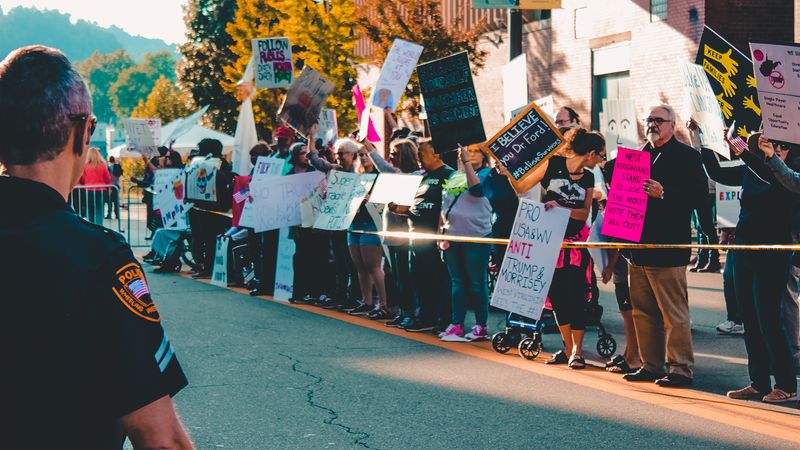Africa: Gabon Army Officers Seize Power after Controversial Election
Introduction
In a shocking turn of events, military officers in Gabon have declared the seizure of power shortly after the country’s election body announced President Ali Bongo’s victory in a third term. This development comes as the Bongo family, who have ruled Gabon for 56 years, faced growing opposition and accusations of corruption and mismanagement of the nation’s oil and mining wealth. The coup has sparked both celebrations and condemnations, with France, Gabon‘s former colonial ruler, expressing concern about democratic backsliding in the region.
The Coup and its Implications
The military officers, identifying themselves as “The Committee of Transition and the Restoration of Institutions,” declared the cancellation of the election results, the closure of borders, and the dissolution of state institutions. They also claimed to have detained President Ali Bongo and his son, Noureddin Bongo Valentin, on charges of corruption and treason. This latest episode adds to Gabon‘s history of political instability, with violent unrest erupting after Bongo’s disputed 2016 election victory and a foiled coup attempt in 2019.
The Gabon coup, if successful, would mark the eighth instance of a military seizure of power in West and Central Africa since 2020, erasing the democratic gains made in the region since the 1990s. Other countries that have experienced military takeovers include Mali, Guinea, Burkina Faso, and Chad. This trend raises concerns about the fragile state of democracy in the region and the potential for instability.
Public Discontent and Democratic Backsliding
Public discontent with the Bongo family and their ruling party has been widespread in Gabon. Opponents argue that the family has failed to distribute the nation’s oil and mining wealth equitably among the population. The lack of transparency surrounding the election, including the absence of international observers, the suspension of foreign broadcasts, and internet shutdowns, further fueled suspicions of electoral fraud.
The coup leaders claim to represent all factions of Gabon‘s security apparatus, indicating that suppressing the uprising may prove challenging for President Ali Bongo. The widespread public discontent against the Bongo family and their ruling party, combined with the military’s support for the coup, suggests a deep-rooted dissatisfaction with the current regime.
International Reactions and Implications
The international community has responded with a mixture of condemnation and calls for a peaceful resolution. France, with its historical ties to Gabon, expressed concern about democratic backsliding in the region and condemned the military coup. The coup presents additional challenges for France’s presence in the region, as it has already faced expulsion from Mali and Burkina Faso after previous coups in those countries.
China and Russia called for a peaceful resolution and a swift return to stability. The coup in Gabon highlights the need for a concerted effort to address democratic backsliding and political instability in the region. The implications of this coup extend beyond Gabon‘s borders, raising questions about the future of democracy in West and Central Africa.
Economic Consequences
Gabon is a significant oil-producing nation, producing approximately 200,000 barrels of oil per day. The country’s oil industry includes international companies such as France’s TotalEnergies and Anglo-French producer Perenco. The coup has already had economic repercussions, with French miner Eramet halting operations and Gabon‘s dollar-denominated bonds experiencing a decline.
Additionally, the presence of tankers and ships in Gabon‘s waters, including major ports such as Owendo and Port Gentil, points to disruptions in port operations. The economic consequences of the coup could further exacerbate the already challenging situation in Gabon, impacting both domestic and international stakeholders.
Conclusion and Recommendations
The military coup in Gabon is a concerning development that highlights the fragility of democracy in West and Central Africa. It is crucial for the international community, regional organizations, and neighboring countries to take immediate action to restore democratic processes and promote stability in the region.
Gabon, its neighbors, and international partners should work together to address the underlying causes of public discontent and growing political instability. This may entail implementing reforms to ensure greater transparency and accountability in governance, promoting inclusive economic development, and fostering peaceful and democratic transitions of power.
Furthermore, it is essential for international actors, particularly former colonial powers like France, to offer support and assistance while respecting and upholding the principles of self-determination and sovereignty.
Ultimately, a peaceful resolution and a return to democratic governance in Gabon are crucial for the well-being of its people and the stability of the region as a whole. Failure to address these challenges may result in a further erosion of democratic values and an increase in political instability, with potentially severe consequences for the people of Gabon and the wider African continent.

<< photo by Rosemary Ketchum >>
The image is for illustrative purposes only and does not depict the actual situation.
You might want to read !
- Power Struggle in Gabon: Military Officers Stage Coup to Oust President
- New Title: Exploring the Implications of the Gabonese Military Coup
- When the Spotlight Turns Dark: Controversial Music Video Castings and Their Fallout
- Exploring the Timeless Bond: Unveiling the Heritage and Importance of Raksha Bandhan in 2023




